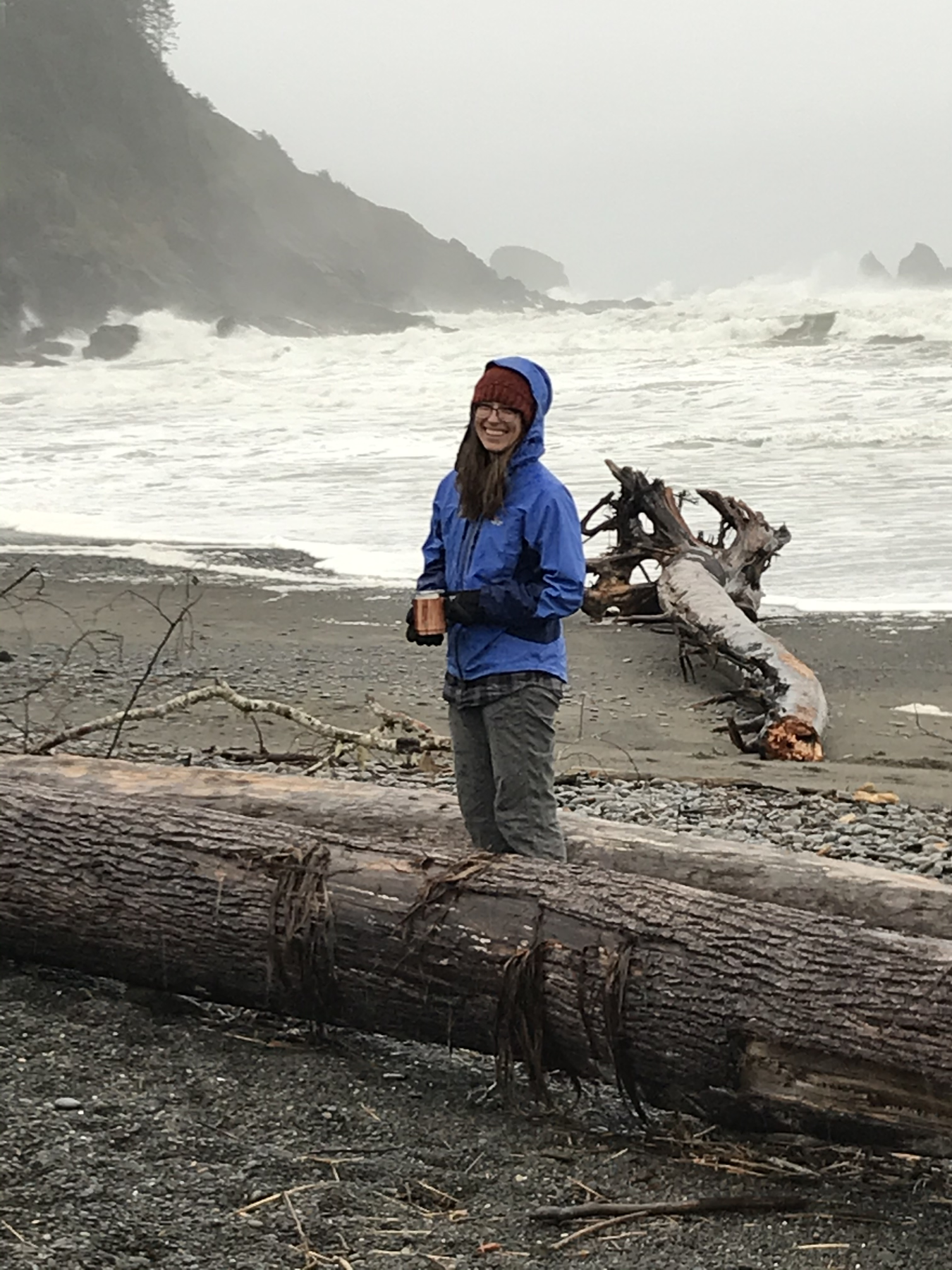Learn why Nikki Sather loves her job as a research scientist at Pacific Northwest National Laboratory’s Marine Sciences Laboratory.
June 30, 2020June is Ocean Month, and to celebrate STEM Rising is sharing profiles of Energy Department staff in ocean-related careers. Meet Nikki Sather.
My name is Nikki Sather and I’m a research scientist at Pacific Northwest National Laboratory’s Marine Sciences Laboratory in Sequim, Washington. For the last 15 years, my research has included work in water power, aquatic ecosystems, and habitat restoration.

What’s your favorite fact about the ocean?
The ocean is a global connector. The things that are happening along a given coastline or area of the ocean have implications to locations that may be quite far away. Examples of this include fisheries, pollution, or changes to ocean conditions.
What do you do to celebrate Ocean Month?
Coincidentally, my family and I actually kicked off Ocean Month with a bike ride to Dungeness Bay Beach. June brings very low daytime tides and that means tide pools can be explored at our favorite spot, Salt Creek in the Strait of Juan de Fuca. We plan to explore these coastal areas several times this summer.
What inspired you to work in water power?
I grew up in the Northwest. Some of my earliest memories are centered around being around saltwater and the ocean. I was definitely intrigued by the notion of marine energy being developed from the ocean.
What do you do in your job?
In my job, I study how technology can benefit the development of sustainable energy and how we can reduce any environmental effects that come from it. I study how organisms, like juvenile salmon, respond to changes in their environment. I work with researchers and regulators to determine how to sustainable renewable energy development can coexist with organisms and is environmentally compliant.
What books or movies about the ocean do you recommend?
Endurance: Shackleton’s Incredible Voyage by Alfred Lansing
Where The Crawdads Sing by Delia Owens
A House For Hermit Crab by Eric Carle
The first order of business is really to hone what you’re interested in and find what you’re passionate about. The best way to connect with people in those fields by volunteering at the local marine science center or participating in STEM seminars. I really encourage college students to participate in internships every year of their college career. The reason that’s important is that it helps them hone their interests and develop their network.
For more Ocean Month profiles and STEM resources, visit STEM Rising.

